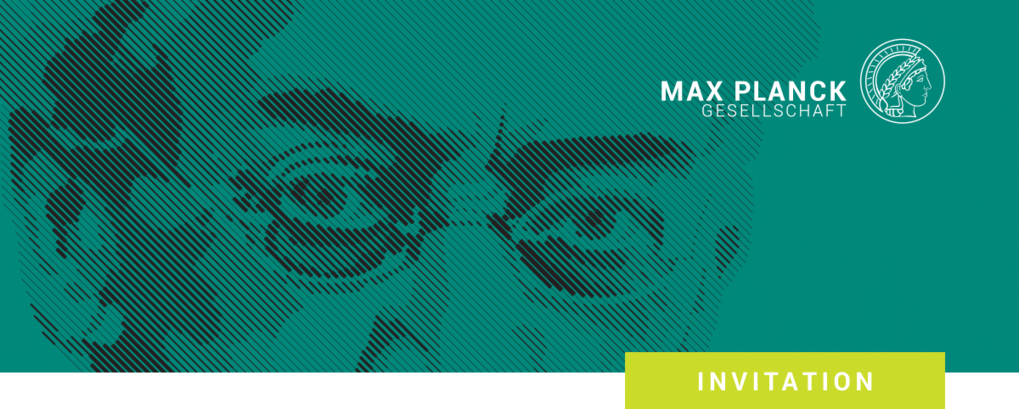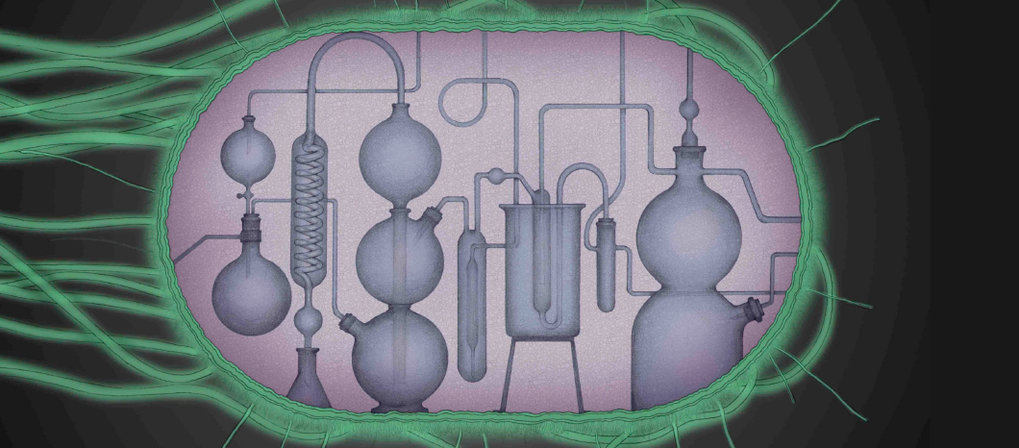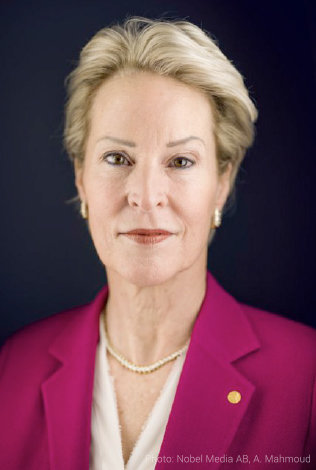
HARNACK LECTURE · LIVE EVENT
17 February 2021 · 7:00 p.m. · CET
| WELCOME | Prof. Dr. Martin Stratmann President of the Max Planck Society |
|
| MODERATION | Dr. Patrick Illinger, senior editor at the Süddeutsche Zeitung and author of the science thriller „Quantum – Tödliche Materie“ (dtv) | |
| LECTURE | Prof. Frances H. Arnold, PhD California Institute of Technology, Pasadena, U.S.A. Innovation by Evolution: Bringing New Chemistry to Life |
|
FOLLOWING |
Q & A Session |
|
LECTURE

Innovation by Evolution: Bringing New Chemistry to Life
Evolution – the adaption of species to different environments – has created an enormous diversity of life. In the early 1990s, Frances Arnold used the same principles – genetic change and selection – to pioneer methods of „directed evolution“ to create new proteins not found in nature. The process involved inducing random mutations and screening the resulting enzymes for sought-after properties. Arnold’s discovery was hugely important – creating a completely new way to design and produce pharmaceuticals and renewable fuels for a greener transport sector.
In her talk, Frances Arnold will describe how lessons from nature inspired the development of methods for directed evolution. How is it possible to build sustainable, biological routes to important fuels and chemicals? Evolution, the most powerful biological design process, can also innovate, generating new enzyme catalysts, with a little insight from chemistry. Whole families of new-to-nature enzymes increase the scope of molecules and materials we can build using synthetic biology and move us closer to a sustainable world where human-invented chemistry will be genetically encoded.
SPEAKER
 |
Frances H. Arnold, PhD
California Institute of Technology, Pasadena, U.S.A. Frances Arnold is the Linus Pauling Professor of Chemical Engineering, Bioengineering and Biochemistry at the California Institute of Technology. Arnold received the Nobel Prize in Chemistry (2018) for pioneering directed enzyme evolution methods, which she has used to engineer enzymes for alternative energy, chemicals, and medicine. Arnold received the Charles Stark Draper Prize of the US National Academy of Engineering, the US National Medal of Technology and Innovation from President Obama, and the Millennium Technology Prize. She has been elected to all three US National Academies of Science, Medicine, and Engineering as well as Foreign Member of the Royal Academy of Engineering. She was appointed to the Pontifical Academy of Sciences in 2019. Arnold is a Director of Illumina and Alphabet, chairs the Advisory Panel of the David and Lucile Packard Foundation Fellowships in Science and Engineering, and is a Trustee of the Gordon Research Conferences. She received her B.S. in Mechanical and Aerospace Engineering from Princeton University and her Ph.D. in Chemical Engineering from the University of California, Berkeley. |
| REGISTRATION | There is no need for registration. You can join the live event by following the link: |
| > www.mpg.de/hl17221
Please note that the link will not be open before 17 February 2021, 6:55 p.m. CET. |
|
| CONTACT | Max Planck Society, Berlin Office · Sabine Schild · Phone +49 30 4990 5636 harnack-lecture@gv.mpg.de · www.mpg.de |
If you no longer wish to receive any invitations, please send an email to anmeldung@gv.mpg.de.
You can find out more about our privacy policy at www.mpg.de/privacy-policy.